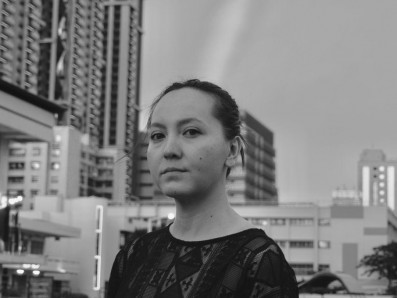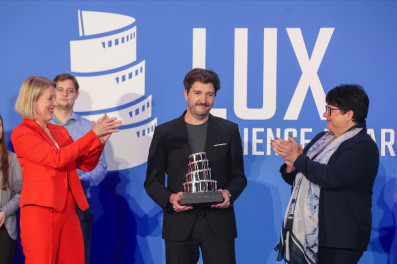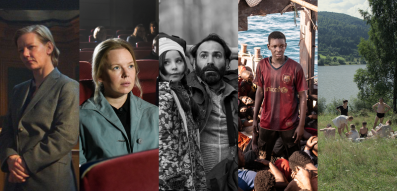Film review: Aga's House (2019)
The origins of trauma and sin
A sunny meadow, a rugged path and a boy, walking back home, open up Aga's House the first feature-length film of Kosovar director Lentida Zeqiraj. A nine-year-old Aga - starring Arti Lokaj - lives with his mother Kumria - starring Shengyl Ismaili - and four more women in a remote rural house far away from society. He is selling tobacco and weed attempting to earn enough money so he can go and find his long lost father, that he believes is captured and rots somewhere in a Serbian prison. Nobody except abusive local man Cera - starring Basri Lushtaku -supports Aga's pursue.
Director Zeqiraj has shown in her previous short films, (that have travelled to more than 300 international festivals), that her stories focus on wartime, youth and the people living on margins of society. In that sense, Aga's House looks like a culmination of hard work in her fifteen-year-long career. The film tells stories of women and boy living far away from the world. From the first moment, it is obvious that something is not right, but it's actually really hard to pinpoint what that certain something is. Relations of women are blurred out, they don't really resemble one another, with their attitudes and age they also don't really look they could be in any kind of blood relation.
South-Slavic cinephiles might be able to draw a few parallels with Snow, Cannes Critics Week awarded film by Bosnian director Aida Begić and Golden Berlin Bear awarded film Esma's Secret by Jasmila Žbanić. It's not far away from the truth, as the faiths and history in a region is similar, so are the films in a certain sense. But what director Zeqiraj brings on a table is a bit more deliberate and deeper story than we had a chance to see so far in a region.
As the film reveals stories of individual characters, we see that focus shifts more and more from the usual there is/was war here and there is/was hate here narrative and moves towards to something more universal and understandable globally, patriarchy. The way women in the house were/are treated by their husbands and their families show the important problem rarely noticed and talked about in the region. As every woman is different in age and attitude, so is her story and the path that leads her all the way up to the house in the middle of nowhere...
Although the wartime narrative is mentioned often during the film, in relation to Aga's father and also in relation to depressed Croatian woman Zdenka - starring Rebeka Qena - it is not explored and exploited deeply, like it is in most of the regional films. Yes, there is a certain amount of hate and untrust between Zdenka, and other women that deliberately provoke her by calling her Serbian, but it is never played to tell stories of wartime, but rather to push forward stories of five women.
Aga's house had it's premiere at this years Karlovy Vary Film Festival, and even thou it didn't win any awards, it certainly will be one of the interesting films that will find it's audience across the many festivals I believe it will visit during the next year.














